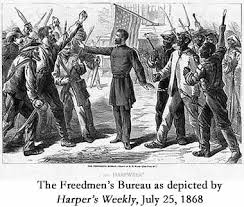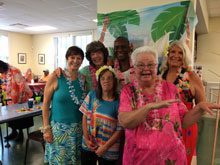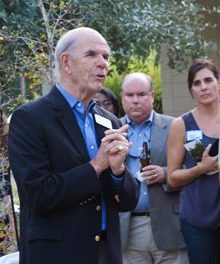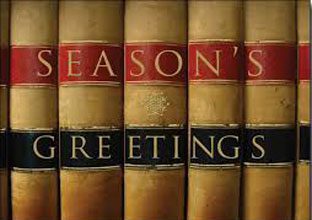
A history professor at USCB has been awarded a grant of nearly $200,000 by the National Endowment for the Humanities to conduct a three-week institute for school teachers on the history of Reconstruction and its aftermath along America’s Southeastern coast.
J. Brent Morris, Ph.D., an assistant professor of history in the Department of Humanities and Fine Arts at USCB, will share in a total of $34 million in grants awarded by the NEH for 177 humanities projects nationwide. Dr. Morris earned a B.A. degree magna cum laude in History and English Language and Literature at the University of South Carolina in 2001, and an M.A. degree in History at Cornell University, Ithaca, N.Y., in 2008. He earned a Ph.D. at Cornell in 2010, specializing in United States and African-American History.
Dr. Morris’s research and academic interests involve Nineteenth Century United States History; South Carolina History; Slavery, Abolition and Antislavery; the Civil War and Reconstruction; and African-American History.
As an undergraduate at USC, Dr. Morris earned a Palmetto Fellows Scholarship each year from 1997 through 2001. The South Carolina Commission on Higher Education established the Palmetto Fellows Scholarship to recognize talented high school seniors and provide financial support through their college careers. He also earned a research fellowship from the University of South Carolina Institute for Southern Studies for 2009 through 2012.
He received three fellowships and two research grants while doing post-graduate work at Cornell, and then went on to earn a research fellowship from Oberlin College and an NEH research grant.
In the latest NEH award, announced July 21, the University of South Carolina Columbia will receive an outright grant of $199,157 to fund a three-week institute in the summer of 2015 for 30 K-12 teachers selected from across the country. Dr. Morris, the project director, has assembled a virtual who’s who of nationally renowned American history scholars to teach the courses. They will explore the topic of Reconstruction and its aftermath in South Carolina, Georgia and the Sea Islands. The project is entitled, “America’s Reconstruction: The Untold Story.”
Besides Dr. Morris, instructors for the institute will include Lawrence S. Rowland, Ph.D., the university’s distinguished professor emeritus. Dr. Rowland is a noted historian, scholar and chronicler of Beaufort County. He can trace his family’s ancestry back to 1679 when Sgt. Lawrence Sanders, an English property owner, migrated from the Caribbean island of Barbados to the nascent colony of South Carolina. The Sanders family has been in Beaufort ever since.
USCB historian Steve Wise, who earned his Ph.D. at the University of South Carolina, has agreed to teach at the institute. His scholarly interests involve military history, American history and the history of South Carolina.
Yet another luminary is Eric Foner, Ph.D., the DeWitt Clinton Professor of History at Columbia University in New York. Dr. Foner is widely regarded as the leading contemporary historian of the post-Civil War Reconstruction period. A former president of the American Historical Association, Dr. Foner is the author of The Fiery Trail: Abraham Lincoln and American Slavery, which won the Pulitzer Prize, the Lincoln Prize and the Bancroft Prize in 2011.
“This period in history is known for the federal government’s attempts to grant equal rights to former slaves as well as the political leadership of African-Americans in the former Confederate States,” Dr. Morris says. “Reconstruction actually began in Beaufort County (Port Royal) in 1861, the first year of the war, and, though the era fell short of many Americans’ expectations, it laid much of the groundwork for the ‘Second Reconstruction,’ or the Civil Rights Movement, of the 20th century.”
The institute will be housed on the Historic Beaufort Campus of the University of South Carolina Beaufort. The class also will spend extended time at the Penn Center on St. Helena Island, Mitchellville on Hilton Head Island, and Sapelo Island, Ga.
The $34 million in NEH grants will help support a wide range of scholarly projects, including: traveling exhibitions, the preparation and publication of scholarly editions, professional development opportunities for teachers and college faculty, the preservation of cultural collections, and more.
For more information about Dr. Morris and the Reconstruction project, contact Candace Brasseur, USCB public information director, at brasse@uscb.edu.






